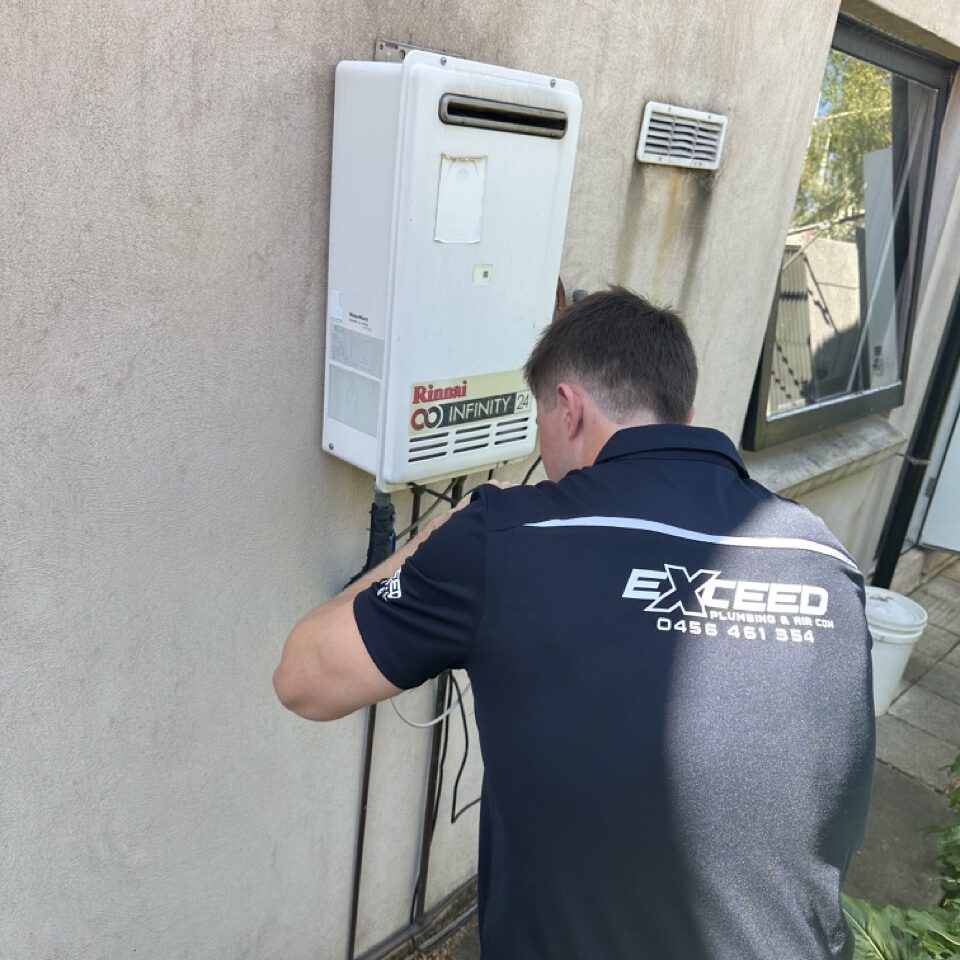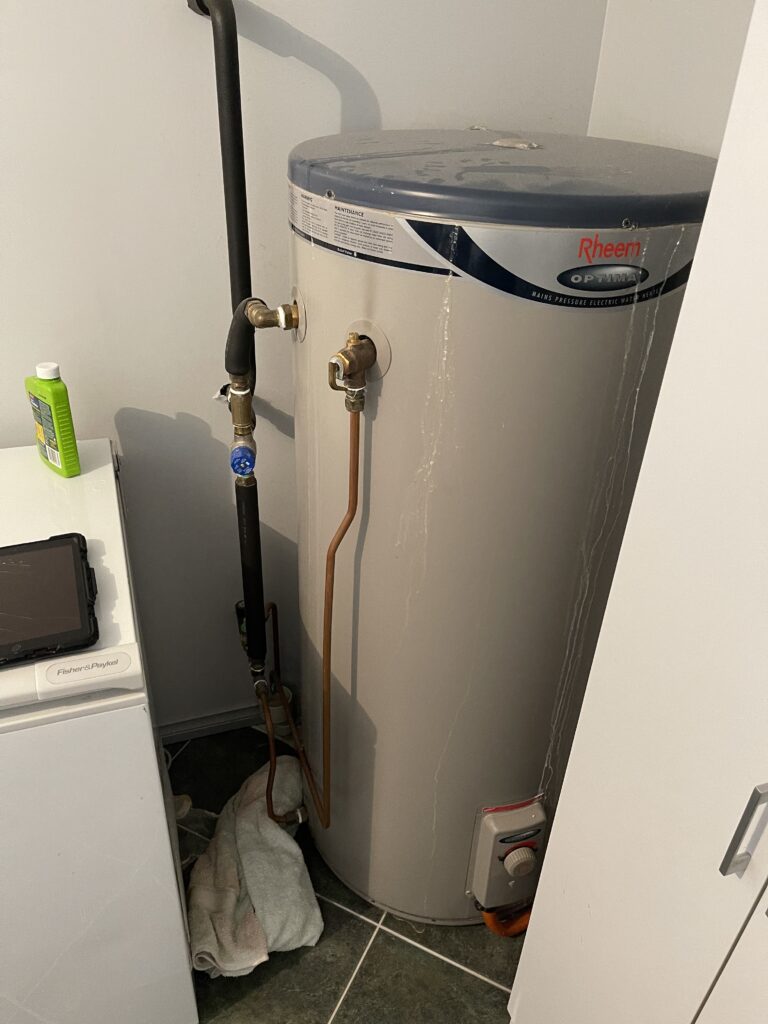Wondering how long should a hot water system last? The answer varies, but typically, you can expect a well-maintained hot water system to serve you for 8-20 years, depending on the type—be it gas, electric, tankless, or solar. In this guide, we’ll navigate the factors that influence this range, provide insights for different systems, and offer tips to maximise longevity without overwhelming you with unnecessary details.
Key Takeaways
The lifespan of hot water systems varies widely based on factors such as maintenance, system type, usage intensity, and quality, with continuous flow, solar, and heat pump systems generally offering longer lifespans than traditional gas and electric tank systems.
Proper maintenance, including regular inspections, servicing, part replacements, and system flushing, is critical for maximising the longevity of hot water systems and can prevent issues like rust, corrosion, and system inefficiencies.
Making an informed decision on replacing a hot water system involves considering water usage patterns, household size, long-term cost implications, energy efficiency, and potential rebates for more sustainable systems.
Decoding the Lifespan of Hot Water Systems

The lifespan of a hot water system can seem puzzling, with numerous factors contributing to it. Some of these factors include:
- Maintenance regularity
- System usage intensity
- Material type
- Overall quality
All of these factors substantially influence the longevity of the system. For example, a well-maintained system can mitigate issues early on, enhancing durability and operational lifespan.
Another factor to consider is the type of hot water system. For instance, tankless systems, thanks to their simpler mechanisms and lack of stored water (which can cause corrosion), typically outlast their tank counterparts. Moreover, investing in a high-quality hot water system from a reliable manufacturer can also significantly extend its lifespan.
Grasping these factors plays a vital role in extending the lifespan of your hot water system. It’s not just about providing hot water on demand but also about capitalising on the investment, ensuring the system lasts as long as possible, and minimising unnecessary expenses.
The Different Styles of Hot Water Systems

Each type of hot water system has its distinct average lifespan, which we will examine before delving into their specifics. There is a wide range of options available, including:
- Gas Continuous Flow Hot Water Systems (Tankless)
- Gas Storage Tank systems
- Electric Storage Hot Water
- Solar-powered Options
- Heat Pump Systems
These options offer a diverse selection for various preferences and needs.
Examining each of these systems carefully reveals a clearer understanding of their lifespans and the elements affecting their longevity.
Gas Hot Water Systems: A Closer Look
Gas hot water systems, a common choice for many households, generally last between 8-12 years. Nevertheless, one should note that this hot water system’s lifespan can be shorter than that of electric systems. This difference, though small, can influence the decision-making process for homeowners when considering how long hot water systems last, especially when comparing gas and electric systems.
Additionally, brand variations can also influence the lifespan of gas hot water systems. For instance, some models of Rheem hot water systems can potentially last between 10-15 years, offering an extended lifespan compared to the general average. This demonstrates the importance of considering all aspects, including brand and model, when choosing a gas hot water system.
Electric Storage Hot Water Systems: Understanding Their Longevity
In contrast, electric hot water systems typically last between 10 and 15 years. But don’t be fooled into thinking that all electric systems are created equal. The capacity of the system can significantly affect its lifespan. For instance, 50-litre to 80-litre systems and 160 to 250-litre systems typically last between 8-12 years.
While electric systems are generally cheaper to purchase and install, they can be more expensive to operate in the long run. Off-peak electricity options can provide a more cost-effective solution, offering another layer to consider when choosing an electric hot water system.
Solar & Heat Pump Systems: Energy Efficiency Meets Durability
Solar hot water systems, including the solar hot water system and heat pump systems, present a blend of energy efficiency and durability. Here are some key benefits of these systems:
- Solar systems can last up to 20 years or more, with their lifespan influenced by the quality of installation and maintenance.
- Despite their higher upfront costs, they offer considerable long-term savings on energy expenses.
- They are environmentally beneficial, as they reduce reliance on fossil fuels and lower greenhouse gas emissions.
Conversely, heat pump systems have an average lifespan of 7-10 years but offer up to 80% more energy efficiency than electric hot water systems. They also usually come with shorter warranties, often around 5 years. Thus, for those considering a balance between energy efficiency and durability, solar and heat pump systems offer compelling options.
The Impact of Maintenance on Your Hot Water System’s Lifespan
Regular maintenance has a profound impact on your hot water system’s longevity. Routine practices such as inspections, sediment flushes, and checks of the system components are essential in extending the lifespan of hot water systems. For example, replacing the sacrificial anode every five years, performing biannual TPR valve check-ups, and annually inspecting the anode rod are crucial maintenance practices that prevent rust, corrosion, and system malfunctions.
Additionally, here are some tips for maintaining your hot water system:
- Keep the temperature at no more than 120 degrees to prevent excessive pressure build-up and reduce the risk of bacterial growth.
- Regularly descale the system to prevent limescale buildup caused by hard water.
- Schedule professional inspections to ensure everything is functioning properly.
- Follow a maintenance routine to keep the system efficient and prolong its useful life.
By following these tips, you can ensure that your hot water system, including hot water heaters, stays in good condition through proper hot water system maintenance.
When Is It Time to Replace Your Hot Water System?

Recognising when to replace your hot water system is equally important as understanding its maintenance. Several signs indicate the need for replacement; recognising these can save time, money, and prevent potential water damage. For instance, internal corrosion, which can be identified by a metallic taste, brown water or smell in the water, signals immediate replacement.
The presence of rust and sludge accumulating in the tank or evident in the water is another clear sign that the hot water system has reached the end of its lifespan. Similarly, loud noises such as banging and gurgling are often due to sediment inside the tank or worn components, indicating a failing system.
Signs that your hot water system may need to be replaced include:
- Consistent fluctuations in water temperature or a system providing only lukewarm or cold water, which may indicate failing heating elements
- Visible leaks or puddles around the hot water tank, which often suggest internal tank fractures or component issues
- An older system (more than ten years) that requires frequent repairs, as it may be more economical to replace the system rather than continue with ongoing maintenance.
Maximising the Lifespan of Your Hot Water System

Maximising your hot water system’s lifespan ensures consistent hot water supply and substantial cost savings. Implementing routine maintenance practices, such as insulating hot water pipes and cleaning or replacing air filters in a heat pump system, are key to ensuring efficient operation and longevity.
Proper thermostat settings around 49°C and adherence to the manufacturer’s maintenance schedule can reduce the risk of system malfunctions. Additionally, annual flushing of the hot water heater tank to remove sediment, insulating the heater, and using vacation mode during extended absences can drastically improve system lifespan.
Making an Informed Decision: Choosing a New Hot Water System
Selecting a new hot water system necessitates a well-informed decision. It’s crucial to evaluate your current water usage, consider any increased water demands, and ensure the new system can adequately meet these needs based on:
- Household size
- Daily water usage patterns
- Bathroom count
- Age-related water consumption patterns
- The simultaneous use of multiple appliances
- Local climate
- Available fuel sources
The appropriate hot water system involves assessing all of these factors to make the best choice for your household.
Long-term cost implications and environmental impacts are integral to the decision-making process. This entails:
- Comparing upfront costs against ongoing savings
- Considering energy efficiency
- Exploring potential benefits from government incentives for choosing greener options.
The Cost-Benefit Analysis of Hot Water System Replacement
Opting to replace a hot water system calls for a meticulous cost-benefit analysis. Rising energy bills, despite consistent water usage, suggest inefficiency that may necessitate the replacement of a hot water system. Additionally, federal and state rebates and incentives can reduce the initial cost of more energy-efficient hot water systems like solar and heat pump models.
In some cases, replacing a hot water system may be more cost-effective than frequent repairs, particularly if the system is close to or beyond its expected lifespan of 10-13 years. Therefore, it’s crucial to consider both the immediate and long-term financial implications when deciding to replace a hot water system.
Navigating Warranties and Manufacturer’s Claims
To guarantee adequate protection for your hot water system, it’s essential to comprehend warranties and manufacturer’s claims. A water heater warranty typically covers the unit’s tank and components for a specified period, but coverage can vary between manufacturers and may offer longer protection for the tank. However, some warranties may be void if the water heater was installed by someone other than a licensed professional or if the unit was not registered, and improper maintenance or installation can also lead to loss of warranty.
Keeping all documentation related to the hot water system’s purchase and installation is essential. Furthermore, understanding the warranty exclusions, limitations, and the claims process for malfunctions can provide peace of mind and prevent unexpected expenses down the line.
Summary
In summary, understanding the lifespan of a hot water system and the factors that influence it is crucial. From maintenance regularity and system usage to the type of system and water quality, each plays a significant role in the longevity of a hot water system. Making informed decisions about maintenance practices, when to replace your system, and which new system to choose can lead to significant cost savings and ensure a steady supply of hot water for years to come. So, the next time you enjoy a warm bath or a hot cup of tea, take a moment to appreciate the hot water system that made it possible.
Frequently Asked Questions
How often should hot water systems be replaced?
Hot water systems should typically be replaced around every 10 years to ensure efficiency and prevent potential issues.
How long do hot water systems last in Australia?
Tankless gas hot water systems in Australia can last up to 20 years or more with proper installation and maintenance.
Why is my hot water system running out so fast?
Your hot water may be running out too fast due to excessive hot water demand from multiple sources at the same time, sediment build-up inside the water heater tank, or a broken dip tube. Consider addressing these issues to improve the performance of your hot water system.
What are the signs that my hot water system needs to be replaced?
If you notice signs such as internal corrosion, rust, sediment buildup, loud noises, temperature fluctuations, or leaks, it may be time to replace your hot water system. These signs are clear indicators of potential issues with your system.
How can I extend the lifespan of my hot water system?
To extend the lifespan of your hot water system, ensure regular maintenance, proper thermostat settings, and sufficient insulation are in place. This will help enhance system efficiency and longevity.
